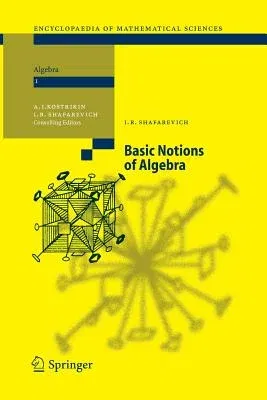§22. K-theory 230 A. Topological X-theory 230 Vector bundles and the
functor Vec(X). Periodicity and the functors KJX). K(X) and t the
infinite-dimensional linear group. The symbol of an elliptic
differential operator. The index theorem. B. Algebraic K-theory 234 The
group of classes of projective modules. K, K and K of a ring. K of a
field and o l n 2 its relations with the Brauer group. K-theory and
arithmetic. Comments on the Literature 239 References 244 Index of Names
249 Subject Index 251 Preface This book aims to present a general survey
of algebra, of its basic notions and main branches. Now what language
should we choose for this? In reply to the question 'What does
mathematics study?', it is hardly acceptable to answer 'structures' or
'sets with specified relations'; for among the myriad conceivable
structures or sets with specified relations, only a very small discrete
subset is of real interest to mathematicians, and the whole point of the
question is to understand the special value of this infinitesimal
fraction dotted among the amorphous masses. In the same way, the meaning
of a mathematical notion is by no means confined to its formal
definition; in fact, it may be rather better expressed by a (generally
fairly small) sample of the basic examples, which serve the
mathematician as the motivation and the substantive definition, and at
the same time as the real meaning of the notion.


